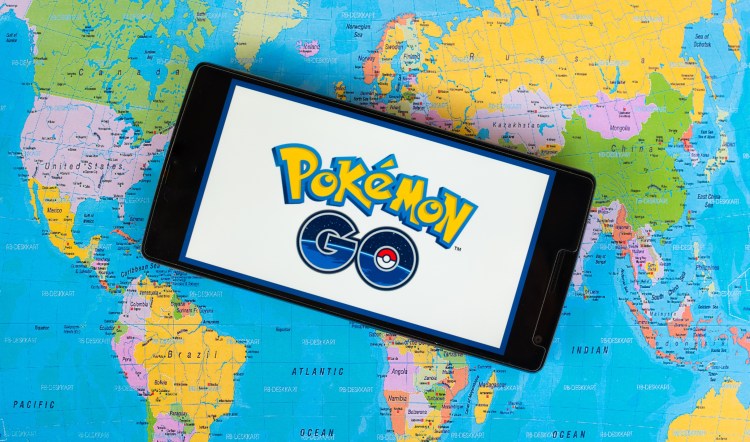The Pokémon franchise scored a double victory in the month of July with the launch of the mobile game Pokémon Go, as the augmented reality app shot to No. 1 and boosted sales of older Pokémon games on the Nintendo 3DS handheld, according to data released today from SuperData Research.
During July, global digital game sales rose to $5.9 billion, up 10 percent from July 2015. Pokémon Go helped drive the mobile category to 16 percent growth from a year ago. Digital console (including downloadable content and online game sales) were up 11 percent, while free-to-play PC games were up 11 percent. The latter category benefited from Blizzard’s Overwatch team shooter and The Division, an open-world shooter. Social games and pay-to-play massively multiplayer online games declined in July.
Pokémon Go surpassed Monster Strike as the top mobile game. Monster Strike was followed by Mobile Strike, Clash of Clans, and Clash Royale. SuperData said that Pokémon Go is the most successful mobile launch in history. The game shot to first place in both top-grossing and top-download rankings for every country it launched in, despite Niantic’s repeated failure to solve technical issues in a timely manner, SuperData said.

Above: John Hanke, CEO of Niantic Labs, got us all off the couch with Pokémon Go.
Of course, some analysts say that Pokémon Go is already on its way down, particularly in August. But SuperData says, “Nintendo’s mobile strategy ended up paying off exactly as intended. 3DS unit sales rose by over 50 percent from a year ago, an astonishing feat for underpowered hardware nearing the end of its lifespan. Furthermore, sales of 3DS games boomed. Combined sales of Pokémon Omega Red and Alpha Sapphire and Pokémon X and Y (2015 and 2013 releases) nearly doubled. Pokémon Go is the only factor that can explain jumps in sales of this magnitude. We are optimistic that mobile spin-offs for Fire Emblem and Animal Crossing will have a positive impact on Nintendo’s ecosystem.” (Here’s our view on where Pokémon Go is headed, and the view from Niantic Labs’ CEO John Hanke, the creator of the game).
On digital consoles, Call of Duty: Black Ops III was No. 1, followed by FIFA 16, Grand Theft Auto V, The Division, and Overwatch. On the PC DLC, Overwatch was No. 1, followed by Counter-Strike: Global Offensive, Minecraft, Guild Wars 2, and Doom. On free-to-play PC, League of Legends was the top game, followed by Crossfire, Dungeon Fighter Online, World of Tanks, and Dota 2.
SuperData CEO Joost van Dreunen said in a statement that Valve has figured out how to monetize Dota 2 through esports. The Seattle-based tournament, The International, gave away a $20.8 million pot, compared to $18.4 million the year before. And the event had 650,000 concurrent viewers on Twitch. The International is funded almost entirely by a 25 percent cut of the Dota 2 Battle Pass sales.
The Battle Pass gives access to a bundle of exclusive content and events, including fantasy sports-style betting. Valve has successfully engineered a feedback loop between the Battle Pass and The International 00 the success of one directly benefits the other, SuperData said. Although Battle Pass purchases tend to cannibalize sales of other in-game items, long-term revenue certainly benefits from an expanded player base. In the first half of 2016, Dota 2 revenue saw a remarkable 18 percent increase from a year ago.
SuperData said that Valve is the only company to successfully monetize esports events with in-game purchases. Other publishers still struggle to channel esports attention into revenue, but the International provides concrete evidence that competitive gaming can improve a title’s bottom line.
VentureBeat's mission is to be a digital town square for technical decision-makers to gain knowledge about transformative enterprise technology and transact. Learn More

